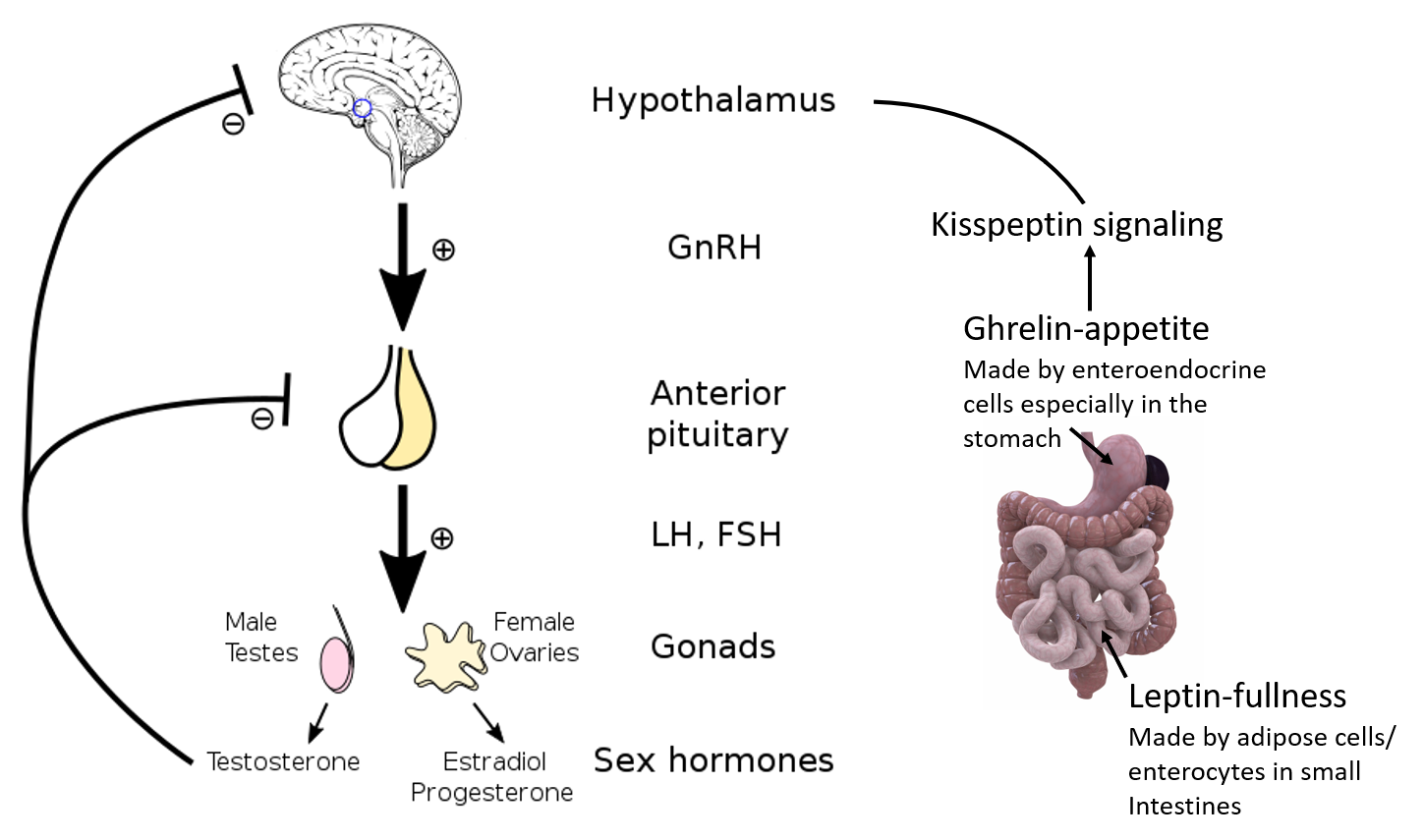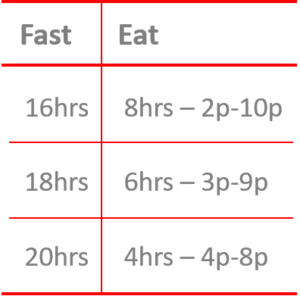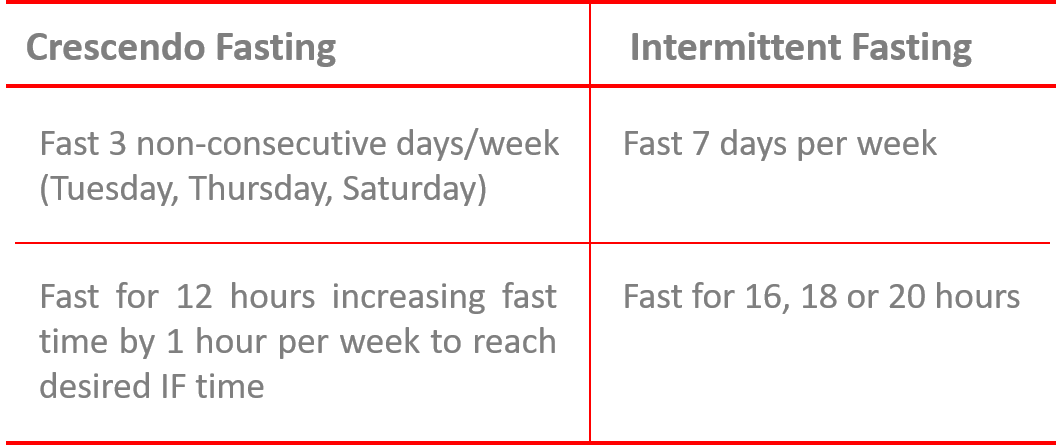There are many benefits that someone can experience using Intermittent Fasting (IF) as a nutritional strategy. By going for extended periods of time without food fuel the human body has the ability to heal itself and reset important hormonal functions. This can aid in better overall health as well as weight loss. Ori Hofmekler described this phenomenon in his Warrior Diet protocols. IF can reduce blood levels of insulin, increase human growth hormone and induce important cellular repair processes reducing inflammation.
A reduction in blood levels of insulin helps the dieter overcome insulin resistance. Insulin resistance is a contributing factor to the inability of the body to burn body fat and lose weight. Blood levels of growth hormone may increase as much as five-fold facilitating fat burning and muscle gain. This can aid in a positive metabolic reset by improving the function of the Hypothalmic-Pituitary-Gonadal (HPG) axis.
What is the HPG Axis?
The HPG axis plays a critical role in the regulation of hormones in the body. Kisspeptin proteins are responsible for triggering the release of Gonadotropin (GnRH) from the hypothalmus in response to hunger and fullness hormones - leptin, insulin, ghrelin.

Women have more kisspeptin than men which makes a female's body more sensitive to drops in this essential metabolic protein. Downstream this can affect estrogen production and balance that can also affect the balance of leptin, insulin and ghrelin. A drop can leave a woman feeling a lot hungrier than a man.
What is Intermittent Fasting (IF)?
Intermittent fasting can be a highly beneficial tool to reset hormonal function and combat hormonal dysfunction. This can be defined as hormone signaling inflammation that is the root cause of leptin resistance and blood sugar problems. IF can help stabilize glucose levels and improve the metabolism. Ori Hofmekler's Warrior Diet introduced the idea of IF being an effective tool for weight loss and detoxification. The diet strategy requires that you fast for an extended period of time followed by a shortened eating window. Within your eating window you must significantly reduce high glycemic foods that negatively impact the human body's inherent cleansing and fat burning mechanisms. Additionally protein and fat must be increased in a proper ratio as lean protein can actually spike insulin. You want to have a ratio of at least 50% protein to 50% fat transitioning to 30% protein to 70% fat. Take a look at Dr. Berg's excellent 3 minute video that gives a good overview chart of recommended foods.
Fasting increases the body's insulin sensitivity and allows the body to preferentially use fat stores for energy. In addition IF takes advantage of the fasting that occurs while you sleep and gives you a 6-8 hour jumpstart into the fast depending on your sleep cycle. I recommend to clients to start with a food awareness week where you fast for 12 hours and eat for 12 hours. During this time it is important to keep a log. This helps to identify high glycemic foods that need to be eliminated and replaced. Then a plan can be established to add a couple of hours each subsequent week until you get to your desired fasting time.

What are the benefits of IF?
IF helps the body take advantage of increased insulin sensitivity that occurs in the last 1/3 of day. Increased insulin sensitivity has many positive effects.
- Increase in human growth hormone (HGH) = increase muscle
- Increase in lipolysis = increase fat burning (decreased insulin levels tell calories to go to mitochondria instead of fat cells)
- Increase in cellular autophagy = recycle proteins/clearing away of damaged cells
- Decrease in insulin levels = pancreas does not have to raise insulin levels to store nutrients
During the IF eating window meals must be high fat with little to no carbohydrates. Fat sustains and balances blood sugar and when not eating enough fat the body can revolt with a condition known as reactive hypoglycemia. Carbohydrates and lean protein are insulin spikers for the pancreas. When insulin is high the body can’t burn fat.
Why you might NOT benefit from IF?
IF as a diet strategy requires that hormones need to be stable and balanced so the body doesn’t perceive 16 hours as a stressor. It is important to make sure that the function of the adrenals, gonadal hormones (testosterone, estrogen, progesterone) and thyroid hormones (T3, T4) is not impaired if you want to pursue intermittent fasting. This strategy is not good for people with low blood sugar, active thyroid issues or female hormonal issues.
A lot of women have spent their adult lives eating low fat, low calorie meals starving themselves in pursuit of weight loss damaging the metabolism. In addition menopausal women are suffering from a natural fluctuation of hormones that brings about symptoms such as hot flashes, mood swings, etc. that further throws the metabolism off. Adrenal fatigue can also contribute greatly to the imbalance of hormones. Take the simple quiz below to find out if you may have adrenal fatigue or adrenal dysfunction. A hormone balancing product I often recommend to clients to help with this imbalance is called Integrative Therapeutics Cortisol Manager.
Adrenal Fatigue Quiz
- 1Do you have difficulty awakening from sleep in the morning, often hitting the snooze button multiple times?
- 2Have you recently gained weight, especially around your midsection?
- 3Do you feel like you get every cold and flu bug that is going around or that your immune system is shot?
- 4Do you have more difficulty dealing with stress and deadline pressure than you used to?
- 5Do you have a lack of interest in sex?
- 6Do you frequently feel lightheaded upon standing too quickly?
- 7Do you struggle with poor memory or "brain fog"?
- 8Do you feel especially tired in the mornings between 7-9am and afternoons between 3-5pm?
- 9Do you feel the need to snack or eat frequently to maintain normal blood sugar levels?
- 10Do you crave salty foods?
- 11Do you feel extremely tired between 7-10pm but get a second wind if you stay up later?
- 12If you are female, do you struggle with PMS symptoms (such as heavy bleeding, moodiness and fatigue) during your menstrual cycle? If you are male, do you feel like your stamina, energy and ability to maintain muscle have decreased?
- 13Do you frequently have pain in the upper back or neck for no apparent reason?
- 14Do you notice an improvement of symptoms when your stress levels are lower, such as during a vacation of time away from work?
If you answered "yes" to more than 10 of the questions above, you may have adrenal dysfunction, often referred to as adrenal fatigue.
How to prepare the body for IF?
Optimizing nutrition will help to restore proper blood sugar levels that are essential for balancing hormones within the brain. If not eating enough calories in the 8 hour window during the fast the hormonal cycle will be negatively compromised. A good transition to intermittent fasting would be to follow the recommended foods of the ketogenic and paleo diets. Click on the links to see recommended foods. These two diets help to identify healthy carbohydrates and reduce consumption of these carbohydrates over time. In order for IF to be successful a good control over carbohydrate levels is necessary. Another dietary addition that has been helpful is the addition of MCT oil powder. This can help the dieter overcome sugar cravings during the transition to IF - 5 Health Benefits of MCT Oil Powder. Once this goal is achieved consider Crescendo fasting. This is a great way to prepare the body for IF.

Ketogenic Diet Recommended Foods
Do Eat
Do Not Eat
Paleo Diet Recommended Foods
Do Eat
Do Not Eat

Just In Health
For a great overview on the rules of intermittent fasting, check out the video below from Just In Health! Dr. Justin does a great job in his videos of educating his viewers on topics such as: Intermittent Fasting, Thyroid Function, Adrenal Fatigue and Gut Health.
Crescendo fasting and using the recommended foods of Keto and Paleo are a great way to start changing poor eating habits. This combined with food logging can help the dieter create a starting point to begin to implement intermittent fasting. I find with clients that if they can stick to a plan for at least 14 days enthusiasm for the process takes root. Check out other posts on intermittent fasting!
Learn more about our philosophies check out our site Functional Strength Join the community sign up below to our newsletter and receive our FREE Planning and Periodization Guide. Please feel free to send us a question here or leave a comment below.
Want the inside training scoop?
Join The Community
Our email content is full of value, void of hype, never pushy, and always free. As a BONUS you will receive our FREE planning & periodization template to help you with your training goals.




Great info on Intermittent fasting. I am always hesitant to try out new dieting techniques, having been badly burned once from a technique. But this seems like a good one. So, how many meals do one eat while they are on the eating window?
Typically one would eat 2-3 meals within their eating window depending on their schedule. The key is to preferentially lean toward higher fat meals that satiate hunger and do not spike insulin. If you do decide to use IF please let me know how the journey goes at somg@embarqmail.com.
Very good article about fasting to help the transition through Menopause. You explained everything in great detail and I know this this article will help a lot of woman. Very Informative
Thanks for the comment. You would probably find https://functional-strength.org/extend-your-life-force-the-benefits-of-strength-training a more interesting read.
Hello Stacey, this is really interesting. We are told now that eating small amounts throughout the day to keep the metabolism running is better than the feast or famine approach of not eating and then overeating. I wonder how these different theories (that vs intermittent fasting) align? I am guessing the main aspect to keep in mind is that this method focuses on low carbohydrates so that helps avoid a spike and then crash of blood sugar.
I had symptoms that would appear to be early menopause though I was only in my mid 30’s (horrible night sweats for example). It turned out what I really had was estrogen dominance which can be common with birth control pills, chemicals endocrine mimickers, and other health problems. I also had adrenal problems. My Naturopathic Doctor gave me a supplement that balances cortisol levels and the night sweats stopped! It was amazingly effective. Now I wonder how many women my age think they are going into early menopause but might not be?
I also learned about estrogen dominance and found that I could use natural progesterone lotion to great effect. That stopped the rest of my symptoms like horribly itchy skin which was actually a nerve problem caused by estrogen dominance. Now I use minerals that help with all this as well. It is such a huge relief to find these natural treatments!
I think this intermittent fasting technique sounds useful and effective also. It would be interesting to hear more about how it has worked for you.
Thanks for sharing this great information,
Jessica
What an interesting story! I have also been through a process of balancing the adrenals using a great supplement called HPA Adapt by Integrative Therapeutics. It was recommended to me by a Naturopath friend. I have also found the addition of Lysiene to be helpful as well. I shifted to the intermittent fast the beginning of this week and feel great. I fast for between 18-20 hours. I do supplement butter coffee in the am – one pat of butter in the coffee – for a fat hunger supressor. During the day I drink water with lemon and a bit of pink sea salt. Then I eat good solid nutrients in my eating window avoiding carbs and sugar. I am doing this more for energy balance than weight loss but of course I have lost weight.
I am currently in menopause and have been looking for a good fasting program. I knew fasting helped with menopause ailments but I wasn’t sure how until I found your helpful information. I struggle with obesity and short-term memory functioning and am interested in improving my dopamine signaling to zero-in on those two problems plaguing me now. Does this intermittent fasting kick-start your dopamine or how does it work?
Yes it does. Long periods without food increases secretion of a hormone called Ghrelin. This is what gives you that feeling of hunger. It also increases Dopamine production. Having said that it is important to establish a pattern of eating nutrient dense food first to get away from sugar and refined carbs. The sugar and refined carbs will be great impediments to your intermittent fasting goals. In the blog there are links to keto or paleo diets that help with establishing good eating habits first so that you have a greater chance of success on your fast. Please let me know how things go and feel free to contact me at stacygallagher@functional-strength.org if you have any additional questions.
Hi,
I am going through the menopause and was wondering if any fasting or diets would help me? as i seem to be putting on weight since this menopause has came along, i am on hrt and did not know if that has any help towards weight gain.
If intermittent fasting is safe enough i will give it a go, i will try anything to get rid of this ugliness:(
Its good the way you have written down the benefits of IF as i havnt got a clue.
Do you know if it is an old wives tale or is it true that once you are over 40 you cant lose weight?.
I think the first thing to do when wanting to embark on a diet such as this is to take an honest inventory of where your eating habits are now. I incorporated the paleo and keto diet approaches in the blog as a precursor to IF as a way for people who are seriously interested in making nutritional changes to learn how to clean up their calories. That takes about 30 days. There needs to be a general homeostasis of calories and quality nutrients to begin an IF journey. Without that starting point IF becomes yo-yo fad dieting and can actually set your body up for holding on to and creating more fat.
Hormonal adjustments are linked to a difference in fat distribution, which increases belly fat, according to a study that released by the International Menopause Society. It is a complete farce that you cannot lose weight once you are over 40. The key to losing weight is eating good nutrients and not too much of them at any one time. Please feel free to contact me at somg@embarqmail.com should you have any additional questions or concerns.
Thank you for the informative article. I am 48 and premenopausal, I am getting thicker in my midsection despite eating clean and exercising everyday. I will have to try this.
Intermittent fasting is a great way to change up your diet strategy. You have to make sure though that you eat enough fat during your eating window. This is the best tool for suppressing hunger during the 16 hour or longer non-eating window. Please feel free to contact me at somg@embarqmail.com should you have any additional questions regarding this diet strategy.
Very informative article about menopause on women.
Thank you for the read!
[…] fasting and how to eliminate sources of sugar in your nutritional program below.in our post – The Guide to Intermittent Fasting. If you want to learn more about our nutrition philosophy check out our Nutritional Planning […]
[…] Guide to Intermittent Fasting for more info. […]